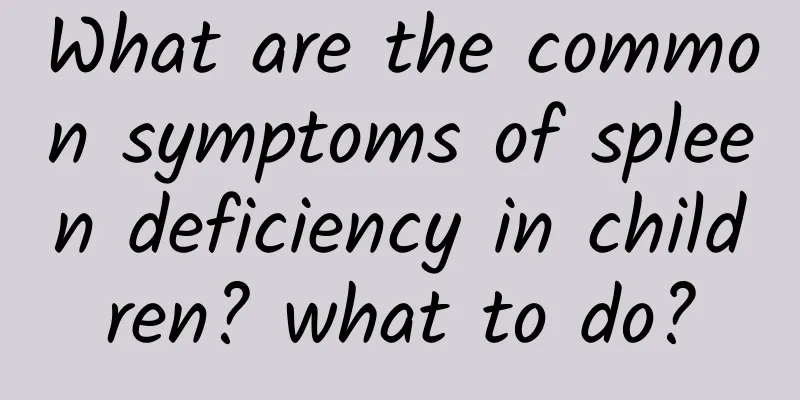Anti-epileptic drugs with minimal side effects

|
Epilepsy is a type of brain dysfunction that is prone to recurring and is a neurological disease. The onset of epilepsy is closely related to age. Usually, the incidence is highest in children under one year old, and the incidence decreases after one year old. As long as you are diagnosed with epilepsy, you will inevitably face treatment. There are many kinds of treatment methods, among which drug treatment is very commonly used. Then which anti-epileptic drug has the least side effects becomes a concern for patients. 1. Anti-epileptic drugs with the least side effects are often used for major seizures and localized seizures: phenytoin sodium, phenobarbital, primidone, diazepam, and chlordiazepoxide are often used for minor seizures: 1. Ethosuximide: The first choice for absence seizures. However, it can aggravate severe seizures, and patients with severe seizures should be treated with phenobarbital or phenytoin sodium. Do not stop suddenly. 2. Phensuximide (Milontin): Similar to ethosuximide, it is used for absence seizures and psychomotor seizures. 3. Trimethadione (Tridione): It reduces the excitability of the cerebral cortex and diencephalon, shortens their subsequent discharge activities, and has a significant effect on minor seizures, but the effect is slow (it takes 2 to 4 days to show effect), and is only used for prevention. Long-term use can easily lead to accumulation; it is highly toxic and gastrointestinal reactions are a precursor to serious reactions. 4. Vanillin: It is an extract from Gastrodia elata. It can counteract convulsions caused by pentylenetetrazol and the epileptic-like brain waves it induces. It is effective for all types of epilepsy, especially minor seizures. Adverse reactions are mild. 5. Acetazolamide (Diamox): It is a carbonic anhydrase inhibitor, which increases the excretion of Na+, K+, and HCO3- in urine, artificially causing acidemia and hypokalemia, increasing the production of inhibitory neurotransmitter g-aminobutyric acid in the brain and hyperpolarizing membrane potential, thus reducing neuromuscular excitability and alleviating cerebral edema. It is more effective for minor seizures, and also has significant effects on major seizures and psychomotor seizures. This product has cross allergic reaction with sulfonamides and should not be used by such patients. Commonly used for psychomotor seizures 1. Sulthiame (thiothiazide) Sulthiame, Ospolt: It is a strong carbonic anhydrase inhibitor with a strong effect. For psychomotor seizures. 2. Carbamazepine, Tegretol: Most effective for psychomotor seizures; similar to phenytoin sodium in efficacy for grand mal seizures and mixed epilepsy; better than phenytoin sodium in efficacy for trigeminal neuralgia; has antidiuretic effect, possibly by promoting the secretion of antidiuretic hormone, and can be used for diabetes insipidus. Broad-spectrum antiepileptic drugs 1. Sodium 2-Propylvalerate, Sodium Valproate, DPA: It does not suppress the discharge of epileptic lesions, but prevents the spread of abnormal discharges. It is effective for all types of epilepsy, especially for minor seizures, where it is better than ethosuximide. It is worse than phenytoin sodium and phenobarbital for major seizures, but it is still effective for patients who do not respond to these two drugs. It is the drug of choice for minor seizures. Low long-term toxicity and few adverse reactions. Possible mechanism of action: Activates glutamate decarboxylase and inhibits g-aminobutyric acid transaminase, promotes the synthesis of g-aminobutyric acid, prevents the decomposition of g-aminobutyric acid, increases the content of inhibitory neurotransmitter g-aminobutyric acid in the brain by 30-50%, decreases neuromuscular excitability, and thus produces its effect. The side effects of anti-epileptic drugs cannot be summarized in one sentence. After all, even epilepsy is divided into categories and severity, and the drugs used are bound to be different, so the comparability is not strong.2. Medication principles 1. Start with a small dose and gradually adjust to the limit of controlling the onset; 2. Single medication, only consider combined use when ineffective, generally not more than 3 types; 3. Take medication regularly; 4. Do not change medication casually. When it is necessary to change, the dose of the original medication should be gradually reduced while the dose of the new medication should be gradually increased to prevent inducing attacks; 5. Adhere to long-term treatment to reduce recurrence. Generally, the dose is gradually reduced within 1 to 2 years until the medication is stopped; 6. Adhere to the principle of gradual reduction and discontinuation of medication; 7. Pay attention to adverse reactions when taking medication, such as rash, dermatitis, etc., and check blood, urine and liver function regularly; 8. If there are symptoms of drowsiness during medication, caffeine (0.02-0.04g/time, 3 times/day) or ephedrine (25mg/time, 3 times/day) should be added; 9. Patients should have a regular life, avoid smoking and drinking, eat a low-salt and low-water diet, do not eat too much, avoid excessive tension, avoid intense exercise, avoid working at high altitudes, near water and near mechanical motors, so as to avoid danger when the disease occurs. 10. Pregnant women should be careful as there is a potential risk of teratogenicity when taking medication. 3. Prevention of epilepsy 1. To prevent the occurrence of epilepsy, a detailed family investigation should be conducted to understand whether the patient's parents, siblings and close relatives have epileptic seizures and the characteristics of the seizures. For some serious genetic diseases that can cause mental retardation and epilepsy, prenatal diagnosis or neonatal screening examinations should be performed to decide on termination of pregnancy or early treatment. Preventing delivery accidents. Neonatal birth trauma is one of the important causes of epilepsy. Avoiding birth trauma is of great significance in preventing epilepsy. 2. Epilepsy patients should be diagnosed promptly and treated early. The earlier the treatment, the smaller the brain damage, the fewer relapses, and the better the prognosis. Eliminating or alleviating the primary diseases that cause epilepsy, such as intracranial space-occupying diseases, metabolic abnormalities, infections, etc., is also of great significance for cases of recurrent seizures. 3. Epilepsy is a chronic disease that can last for years or even decades, and can therefore have serious adverse effects on the patient's physical, mental, marital, and socioeconomic status. The misfortunes and setbacks that patients experience in family relationships, school education and employment, as well as restrictions on cultural and sports activities, can not only cause patients to feel ashamed and pessimistic, but can also seriously affect their physical and mental development. This requires all sectors of society to understand and support epilepsy patients. |
<<: How long does it take to produce milk after breast milk is emptied?
>>: Scar after anal fistula surgery
Recommend
How effective is the Chinese medicine belly squeeze patch?
We can see a lot of Chinese herbal plasters on th...
Does a little girl's hernia need surgery?
For young children, hernia is a relatively common...
What should I do if I feel restless due to anxiety?
Many people often become restless and may even ex...
Which one is better, Qizhendan or Feierwan?
In modern life, people have created a lot of condi...
How many years can one live with Iga nephropathy?
IGA nephropathy is a type of kidney disease with ...
What to do if the humidity is particularly heavy
Too much moisture in the human body will harm hum...
The efficacy and function of banana tree roots
Plantain is also known as Banjiao, Banana, Big Ba...
Treatment of human papillomavirus with traditional Chinese and western medicine
There are many diseases that we don’t recognize, ...
Cracked elbow skin
Many people have experienced dry, hard and cracke...
How to release yourself from psychological repression
It is quite common to feel depressed in life, esp...
At night, it hurts and itches down there
It is relatively common for adult women to suffer...
Adolescent acne
The health of the face is the key factor that aff...
Is inferior myocardial infarction serious?
Inferior wall myocardial infarction is not a very...
Can applying clotrimazole ointment to the vulva cure vulvar itching?
Clotrimazole ointment is a drug that can treat vu...
What fruits are good for pharyngitis? These four fruits can be eaten regularly
After suffering from pharyngitis, people will del...









